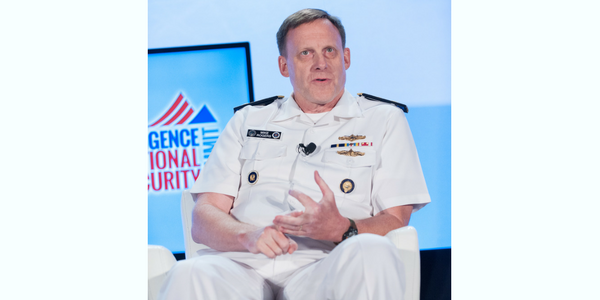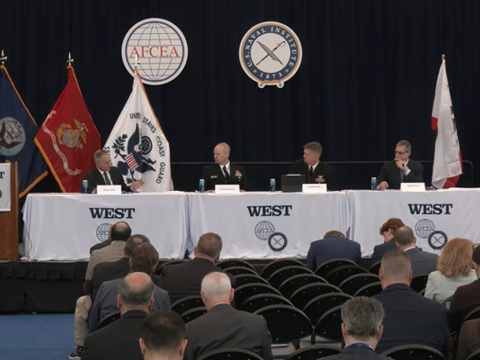An Intelligence Community in Transition
Global changes are sparking a rash of new threats and challenges for intelligence agencies in the United States and abroad.
Terrorist groups continually innovate and adapt. In some ways, their tools and tactics are more sophisticated than ever—using social media to inspire violence, for example. In other ways, their methods are more rudimentary. They have simplified their efforts to include running over people in crowds with cars and slashing bystanders with knives.
U.S. and international intelligence officials described a variety of fresh risks and complications at September’s Intelligence and National Security Summit in Washington, D.C.
Patrick “Paddy” McGuinness, Britain’s deputy national security adviser for intelligence, security and resilience, said terrorist groups persist, no matter how often they are attacked or degraded. He expressed concerns voiced by many about the ability of such groups, including ISIS, to recruit members and radicalize followers from afar using online capabilities.
“We’ve got a big problem with terrorism, and that problem is called the Internet. The Internet is a wonderful and terrible thing,” McGuinness said.
At the same time, the U.S. public has been roiled and made suspicious of government agencies in the wake of leaks by former National Security Agency (NSA) contractor Edward Snowden. The suspicion runs so deep that intelligence officials have resorted to publicly appealing to Congress to renew their ability to collect data on foreign nationals outside the United States.
That authority is derived from Section 702 of the Foreign Intelligence Surveillance Act, which expires at year’s end unless reauthorized by Congress. A number of officials touted Section 702’s benefits to national security.
Adm. Michael Rogers, USN, who heads both the NSA and U.S. Cyber Command, said he expressed concern about reauthorization to Vice President Mike Pence when the two met September 6. Adm. Rogers recalled telling the vice president that if Section 702 is not reauthorized, then his agency “can’t overcome that” because the authority provides a “significant segment of NSA [its] ability to generate insights on counterterrorism, counterproliferation—what nation-states and other actors are doing.”
Sue Gordon, the newly appointed principal deputy director of national intelligence within the Office of the Director of National Intelligence, suggested that officials engage in a conversation with the American public. “This whole security and privacy [issue] is too often set up as an oppositional thing. We’re on the same side. People in the government swear to uphold and defend the Constitution of the United States, which is predicated on the notion of individual rights and privacy,” she stated. “There’s much more common ground than we presume.”
Tom Bossert, White House homeland security adviser, also stressed the need for Section 702, adding that the administration will seek reauthorization from Congress.
Rep. Adam Schiff (D-CA), the top Democrat on the House intelligence committee, expressed confidence that 702 will be reauthorized, but he hinted that changes might be made. “I think we will reauthorize it,” Schiff said. “It’s just a question of what kind of reforms we make to it.” He added that not reauthorizing 702 would be irresponsible.
Schiff also said he is confident that the courts and Congress can effectively oversee 702 data collection efforts. He stressed that agencies do self-report privacy breaches. “I think the combination of what the courts do in their oversight, what we do in our oversight and what the agencies do with their self-reporting is comprehensive and working,” Schiff concluded.
Other challenges include the attempt, allegedly by Russia, to influence last year’s presidential election through hacking and false information spread on social media. Schiff voiced concern that election hacking will only get worse. “What has been unleashed is not going to be put back in the bottle. It’s not going to be just an issue with Russia. It will be an issue with any country that wants to influence our affairs,” he predicted.
Schiff and Sen. Mark Warner (D-VA) reported that the states affected by the election-related hacking efforts had not yet been informed of the details because state officials lacked the requisite security clearances. “It drives me crazy that we have 21 states that were brought into it, and we have yet to come up with a response we can share with the top election officials,” Warner said. Those states were notified in the days after the conference.




Comments